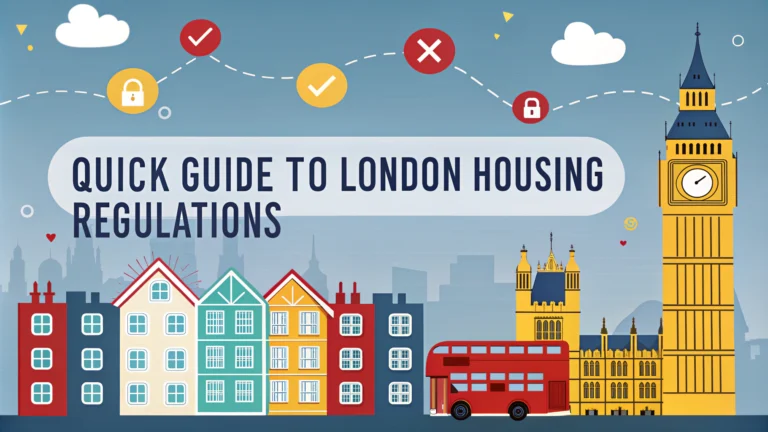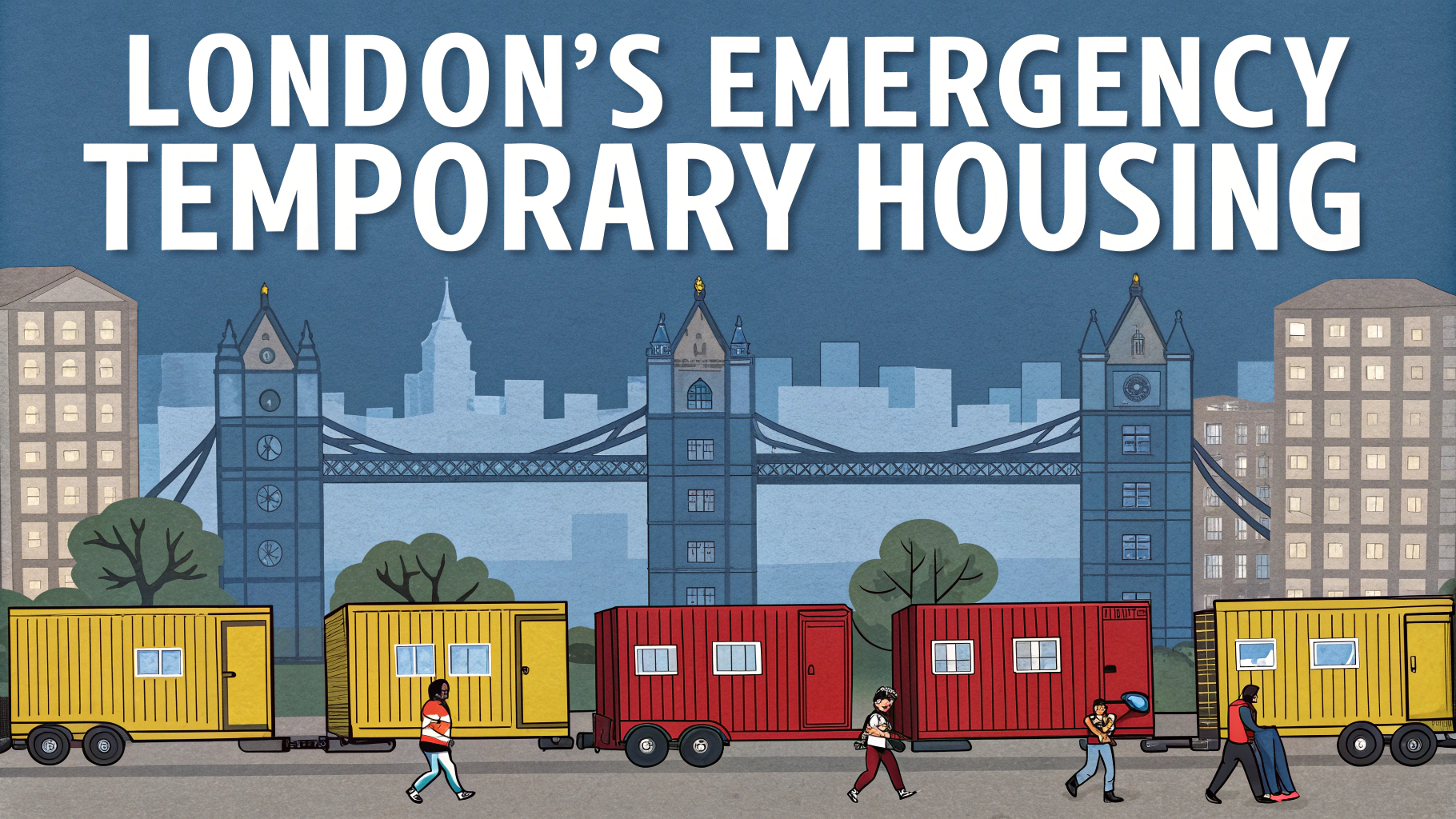London’s housing regulations can feel overwhelming when planning a move to or from the city.
Understanding these rules helps prevent costly mistakes and ensures a smooth transition during your relocation process.
This quick guide covers essential housing regulations, requirements, and practical tips for navigating London’s rental and property market.
Key Housing Regulations in London
- All rental properties must meet minimum safety standards
- Landlords must provide Energy Performance Certificates (EPC)
- Gas Safety Certificates are required annually
- Electrical safety checks must be conducted every 5 years
- Smoke alarms must be installed on every floor
- Carbon monoxide detectors are required where fuel-burning appliances exist
Tenant Rights and Requirements
- Right to Rent checks are mandatory for all tenants
- Deposits must be protected in a government-approved scheme within 30 days
- Landlords must provide a copy of the “How to Rent” guide
- Minimum notice periods apply for evictions
Documentation Needed
| Document Type | Required For |
|---|---|
| Passport/ID | Right to Rent check |
| Proof of Income | Rental applications |
| References | Previous landlords/employers |
| Bank Statements | Financial verification |
Planning Permission and Building Regulations
Most property modifications require approval from local councils.
- Extensions and conversions need planning permission
- Listed buildings have additional restrictions
- Conservation areas have specific guidelines
- Building regulations approval is separate from planning permission
Useful Contacts
- London Housing Ombudsman: 0300 111 3000
- Shelter Housing Advice: 0808 800 4444
- Citizens Advice: 0800 144 8848
- GLA Housing Support: 020 7983 4000
Moving Tips and Best Practices
- Book removal services at least 4-6 weeks in advance
- Notify utility providers 2-3 weeks before moving
- Update your address with important institutions
- Register for council tax at your new address
- Set up mail forwarding through Royal Mail
Next Steps for Your London Move
Contact your local council’s housing department for specific regulations in your area.
Join local community groups and forums for area-specific advice and recommendations.
Consider seeking professional legal advice for complex housing matters through the Law Society’s Find a Solicitor service.
Financial Planning for Your Move
- Budget for deposit and first month’s rent
- Account for agency fees and moving costs
- Set aside funds for utility connections
- Consider insurance costs (contents/building)
- Plan for council tax payments
Area-Specific Considerations
Inner London
- Higher rental costs and deposits
- Congestion charge implications
- ULEZ (Ultra Low Emission Zone) requirements
- Parking permit restrictions
Outer London
- Different council regulations
- Varied transport requirements
- More space but longer commutes
- Different pricing structures
Common Challenges and Solutions
- High competition for properties – prepare documents in advance
- Complex rental agreements – seek professional review
- Property maintenance issues – know your rights
- Deposit disputes – use dispute resolution services
Making Your London Housing Journey Successful
Stay informed about your rights and responsibilities as a tenant or homeowner. Keep all documentation organized and readily accessible. Build relationships with local housing professionals and maintain open communication with landlords or property managers.
Remember to regularly review and update your housing arrangements as regulations and personal circumstances change. Join local housing groups for ongoing support and updates about your area’s specific requirements.
FAQs
- What documents do I need to rent a property in London?
Proof of identity (passport/ID), proof of address, proof of income/employment, bank statements for the last 3 months, references from previous landlords, and right to rent documentation for non-UK citizens. - What is a council tax band and how does it affect my housing costs?
Council tax bands (A-H) determine how much you pay in local property taxes. The band is based on your property’s value, with each London borough setting its own rates. You must register and pay council tax when moving into a new property. - Are landlords required to provide an Energy Performance Certificate (EPC)?
Yes, landlords must provide an EPC before renting a property. Properties must have a minimum rating of ‘E’. The certificate shows energy efficiency and typical energy costs. - What is the maximum allowed deposit a landlord can charge in London?
The maximum tenancy deposit is capped at 5 weeks’ rent where annual rent is less than £50,000, or 6 weeks’ rent where annual rent is £50,000 or more. - How much notice must I give when moving out of a rental property?
Usually one month’s notice if you’re on a monthly rolling contract. For fixed-term tenancies, check your agreement, but typically you must serve notice in line with your rental payment schedule. - What safety certificates must landlords provide?
Gas Safety Certificate (annual), Electrical Installation Condition Report (EICR) every 5 years, and smoke alarms on every floor. Carbon monoxide detectors are required where there are fuel-burning appliances. - Can my landlord increase the rent, and if so, how often?
Rent can only be increased once per year unless agreed otherwise. Landlords must provide at least one month’s notice for periodic tenancies and any increase must be fair and realistic. - What is a Houses in Multiple Occupation (HMO) license?
Properties rented to 3 or more unrelated people forming 2 or more households require an HMO license. Large HMOs (5+ people) always need a license, while smaller ones depend on local council requirements. - What are my rights regarding repairs and maintenance?
Landlords are legally responsible for maintaining the property’s structure, heating and hot water systems, gas appliances, electrical wiring, and managing damp issues. Repairs must be carried out within reasonable timeframes. - Do I need contents insurance as a renter in London?
While not legally required, contents insurance is strongly recommended. Landlords’ insurance only covers the building structure and their fixtures, not tenants’ personal belongings.








